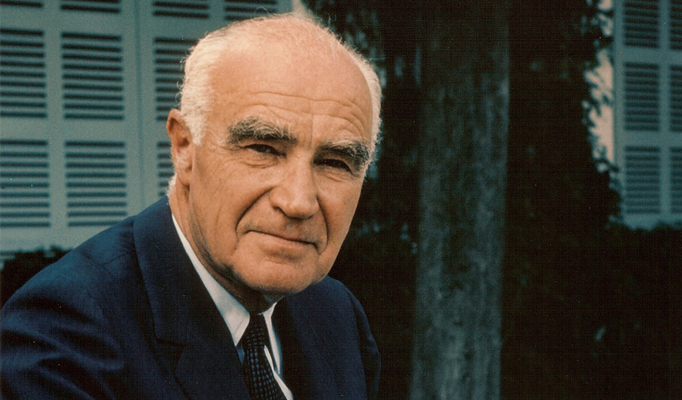
As the founder of TIME, Life, Fortune, and Sports Illustrated magazines, Henry Luce has been described as ‘arguably the most important publisher of the last hundred years,’ and ‘the most influential private citizen in the America of his day.’
Luce’s parents sacrificially devoted their lives as missionaries in China. It took them eighteen years to win their first convert. Luce was born in Penglai City in China. Being sent away at age ten to a British boarding school in Yantai, China, robbed Luce of a healthy family upbringing, leaving him feeling alone and driven to impress others. He described his boarding school experience as a “hanging torture,” commenting: “I well sympathize with prisoners wishing to commit suicide.” Many missionaries, in hindsight, have regretted sending their missionary kids to boarding school. The high value placed on academic education has caused well-meaning parents and their children to lose vital family connections.
Luce was sent by his parents to North America at age 15. Everything was strange and different to him. He had an insatiable inquisitiveness about unfamiliar settings. The novelist John Hersey who worked for him said that “the most attractive thing about Luce was that he was relentlessly curious about absolutely everything; he was delighted to learn any fact that he had not known before.” This curiosity was at the heart of the inventiveness of the four magazines that he birthed.
Luce inherited his parents’ missionary zeal to connect with a foreign culture and make a helpful difference. North America was always a foreign culture that he strove to understand with missionary eyes. He always felt like an outsider. No matter how hard he tried, he never really felt like he fit in.
Alan Brinkley, author of Luce’s biography The Publisher, describes him as “fundamentally shy, lonely and a somewhat awkward man with few true friends… (yet he) had the ability to connect publicly with millions of strangers.” In many ways, Luce was an emotional orphan. Reflecting his Presbyterian heritage, he once said that he did not have a high regard for ‘feelings’, that they were ‘secondary’ to thought. One colleague described Luce as “the loneliest man I’ve ever known.”
While at Yale University, Luce worked endlessly, seeking to be accepted by the other students. As a missionary’s child, he lacked the money and position of other Yale students. Instead, he gained acceptance through his keen investigative mind, and his involvement in helping produce the Yale Daily News. In 1923, Luce birthed an unlikely newsmagazine called TIME, with fellow Yale Editor Britton Hadden. Twenty-three-year-old Luce had earlier written to his girlfriend, “[The] two of us are showing signs of pernicious insanity and will probably undertake a new publishing venture in a few months.” He called the birth of TIME “the gamble of our lives on which everything depends, everything . . . the crazy half-romantic thing that has ruined thousands before us.” Seventy percent of TIME subscribers were younger business executives under age 46. His close friends began affectionately calling him “Father Time.” Brinkley says that Luce’s magazines contributed to ‘the birth of a national mass culture to serve a new and rapidly expanding middle class.”
Sadly, Luce’s workaholic career success was often at the cost of his family life. Being enamoured with the glamorous divorcee Clare Boothe, he left his first wife with whom he had two sons. Brinkley described Harry and Clare’s relationship as a marriage made in hell. Philip Seib said that they were ‘both intensely self-centered and exceptionally ambitious…a perfect formula for making each other miserable.” Boothe became the ambassador to Italy. Despite her infidelities, their marriage lasted the rest of his life.
TIME Magazine was initially critical of Billy Graham until Luce spent several days with him in 1949 at South Carolina Governor Strom Thurmond’s Mansion. Bernard Baruch, a key Presidential adviser, had alerted Luce to the Billy Graham phenomenon, saying “There’s a young fellow down here that’s not only preaching some good religion, but he’s giving some good common sense.” Graham later told his biographer,
“I think he (Luce) was trying to pull me out to see if I was genuine or honest…Through Mr. Luce, people heard about me, people at universities and in the business community and places like that, that would have never considered our work seriously if it had not been written up in a sophisticated magazine like Time.”
Through Billy Graham, Luce re-explored his faith and became a regular attender at Madison Presbyterian Church. He always believed that his magazines could make a positive difference and shape a better world. The image of the Good Samaritan in Luke 10: 33 was a strong motivator in Luce’s thinking.
In 1954, he put Graham on the front cover of TIME magazine, and invited Graham and six other leaders to write essays in Life magazine on the theme of National Purpose. Graham said in Life: “We must recapture our moral strength and our faith in God.”
TIME became a ‘Good Samaritan’ supporter of civil rights and desegregation, with TIME reporters occasionally being beaten and injured.
As Alan Brinkley put it, “Henry Luce – for all his many flaws and sometimes noxious biases – was an innovator, a visionary and a man of vast and daunting self-confidence.”
Are we willing to learn from the missionary curiosity, ingenuity and Good Samaritan fervor of TIME publisher Henry Luce?

Leave a Reply